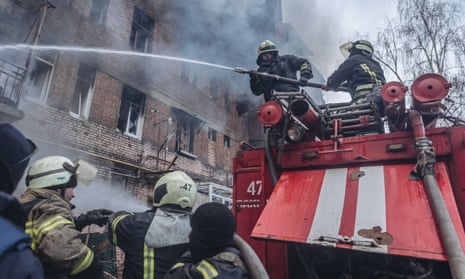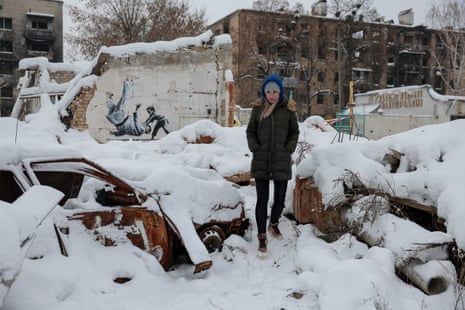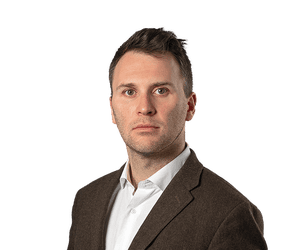[ad_1]
US denounces ‘loose talk’ on nuclear weapons
The US has denounced “loose talk” on nuclear weapons after Russian President Vladimir Putin mused on rising risks of nuclear war but said Moscow would not strike first.
Putin hinted that “such a threat is rising” during a Kremlin meeting on Wednesday but assured that “Russia will under no circumstances use them first”.
US State Department spokesman Ned Price, asked about Putin’s remarks, declined to reply directly but said:
We think any loose talk of nuclear weapons is absolutely irresponsible.”
Price said that nuclear powers around the world since the Cold War, including China, India, the United States and Russia itself, have been clear that “a nuclear war is something that must never be fought and can never be won.”
We think any other rhetoric – whether it is nuclear saber-rattling or even raising the spectre of the use of tactical nuclear weapons – is something that is irresponsible,” Price said.
It is dangerous, and it goes against the spirit of that statement that has been at the core of the nuclear non-proliferation regime since the Cold War.”
US officials have voiced fear that Russia could use nuclear weapons if it feels routed on the battlefield and could plant a fictitious story to justify its actions.
Key events
A Ukrainian pilot who shot down two missiles and five drones before ejecting from his plane has been awarded the Hero of Ukraine, the order of the Gold Star.
Major Vadym Voroshylov carried out the operation over the Vinnytsia oblast on 12 October, before ejecting from his jet after it had been damaged. A photo of him has been circulated on the internet in Ukraine earlier this week, as he took a photo of himself bloodied but defiant afterwards, giving a thumbs up to the camera.
President Volodymyr Zelenskiy approved a government decree on Monday giving him the honour, in recognition of his service.
Before I hand you over to my colleague, Harry Taylor, here are some of the latest snaps to come out of Ukraine today.





The number of oil tankers waiting in the Black Sea to cross Istanbul’s Bosphorus strait on the way to the Mediterranean rose by five to 16 on Thursday, a shipping agency said, according to a Reuters report.
Talks are continuing between western and Turkish officials on steps to resolve the tanker queues after new restrictions were rolled out aimed at Russian oil exports.
The G7 group of countries, the European Union and Australia agreed to bar shipping service providers like insurers from helping export Russian oil unless it is sold at an enforced low price, or cap, to deprive Moscow of wartime revenue.
But a separate Turkish measure in force since the start of the month has caused a logjam, requiring vessels to provide proof they have insurance covering the duration of their transit through the Bosphorus strait or when calling at Turkish ports.
The Tribeca shipping agency named five new tankers longer than 200m waiting north of the Bosphorus strait to cross southbound towards the Mediterranean Sea, in addition to the 11 named a day earlier. It said no ships were scheduled to cross.
At the Dardanelles strait further south, nine tankers were waiting to cross southbound, down from 12 a day earlier, the agency said. Three tankers were scheduled to pass through that strait on Thursday, two en route from Tuapse in Russia to Fujairah in the UAE and one en route from Tuzla in Turkey to Sidi Kerir in Egypt.
Russian troops take part in tactical drills in Belarus
Russian troops are reportedly taking part in tactical exercises in Belarus, according to the Russian defence ministry.
Belarus has said it will not enter the war in Ukraine, but President Alexander Lukashenko has in the past ordered troops to deploy with Russian forces near the Ukrainian border, citing threats from Kyiv and the west.
In a statement cited by Reuters, Russia’s defence ministry said:
Servicemen of the Western Military District … continue intensive combat training on the ranges of the armed forces of the Republic of Belarus …
Combat training events are held during both daylight and at night.
Servicemen are shooting from all types of small arms, as well as from mortars; they hone their skills in driving combat vehicles, pass psychological obstacle courses, study tactical medicine and other disciplines.”
Video clips posted by the ministry showed Russian soldiers in snow gear training near tanks in a winter landscape, firing weapons including artillery.
Ukraine used domestically-modified Soviet drones to strike Russian bases hundreds of miles from its border, according to a recent Politico report.
The drones reportedly struck two military airbases in Russia killing three Russian service members and damaging two airplanes earlier this week.
The drones used in the attack, according to two people familiar with the operation who spoke with Politico on the condition of anonymity, were modified Tu-141 surveillance aircraft left over from the Soviet era.
“The key success factor was a surprise. Russia just did not expect anything of this sort,” said one of the individuals, who works with the Ukrainian government. “Now they will be prepared.”
Ukraine has for months requested long-range missiles and drones from its western allies, but have so far been refused.
Russia launched 1,000 strikes at Ukraine’s power grid, Kyiv says
Russian forces have fired more than 1,000 rockets and missiles at Ukraine’s power grid, which is still working despite taking major damage, Interfax Ukraine news agency cited a senior official as saying on Wednesday.
Volodymyr Kudrytsky, chief executive of the Ukrenergo grid operator, also told a meeting arranged by the European Bank for Reconstruction and Development (EBRD) that his officials were scouring the world for the complex equipment needed for repairs.
Eight recent waves of Russian air strikes on critical infrastructure have seriously damaged the grid and led to emergency and planned outages across the country.
Interfax Ukraine cited Kudrytsky as saying:
These attacks represent the biggest blow to a power grid that humanity has ever seen. More than 1,000 shells and rockets were fired at electrical facilities and lines, including substations.”
Ukraine now has a serious shortage of generating capacity, even though consumption is down between 25% and 30% compared to the pre-war period.
The system is still working, it is integrated, not broken or disconnected,” Kudrytsky said.
President Volodymyr Zelenskiy later said Ukraine was increasing the electricity supply every day but noted problems in Kyiv and several other regions.
“We should not forget … that it is impossible to restore 100% of the energy system, as it was before the beginning of the Russian energy terror,” he said in an evening video address.
“Time is needed. That is why scheduled blackouts continue in most of the cities and districts,” he continued.
Zelenskiy reports fierce fighting in Bakhmut
Ukrainian President Volodymyr Zelenskiy provided a battleground update in his latest national address on Wednesday evening.
Regarding the Donetsk region, Bakhmut districts and other hottest spots. A very fierce confrontation is ongoing there, every metre counts.”
Zelenskiy also noted Russian forces made a “brutal, absolutely deliberate strike” on Kurakhove, also in the Donetsk region. The strike reportedly killed ten people.
Today [Wednesday] the Russian army carried out a very brutal, absolutely deliberate strike at Kurakhove. Precisely at civilians. At ordinary people. At the market, elevator, gas station, bus station, residential building. The list of the dead so far includes ten people, there are many wounded.”
US denounces ‘loose talk’ on nuclear weapons
The US has denounced “loose talk” on nuclear weapons after Russian President Vladimir Putin mused on rising risks of nuclear war but said Moscow would not strike first.
Putin hinted that “such a threat is rising” during a Kremlin meeting on Wednesday but assured that “Russia will under no circumstances use them first”.
US State Department spokesman Ned Price, asked about Putin’s remarks, declined to reply directly but said:
We think any loose talk of nuclear weapons is absolutely irresponsible.”
Price said that nuclear powers around the world since the Cold War, including China, India, the United States and Russia itself, have been clear that “a nuclear war is something that must never be fought and can never be won.”
We think any other rhetoric – whether it is nuclear saber-rattling or even raising the spectre of the use of tactical nuclear weapons – is something that is irresponsible,” Price said.
It is dangerous, and it goes against the spirit of that statement that has been at the core of the nuclear non-proliferation regime since the Cold War.”
US officials have voiced fear that Russia could use nuclear weapons if it feels routed on the battlefield and could plant a fictitious story to justify its actions.
Putin says threat of nuclear war increasing
Putin dedicated some of his remarks on Wednesday to questions about the potential for nuclear war, which he said was growing more likely due to the conflict with the west.
This threat is increasing, I can’t deny it,” Putin said in response to a question, adding that Russia would not use those weapons first.
We have not gone crazy, we are aware of what nuclear weapons are. We have these means, and they are more advanced and more modern than those of any other nuclear country. As of today, this is an obvious fact.
We are not going to wave these weapons around like a razor, running around the world, but of course we act with the understanding that they exist.”
Putin says war could be ‘long-term process’

Andrew Roth
Vladimir Putin has admitted Russia’s war in Ukraine could turn into a “long-term process” as he sought to defend an invasion in which Russian troops have been forced to retreat and even airbases deep inside Russia have come under attack.
Speaking to members of his personal human rights council on Wednesday, Putin claimed that Russia would not use nuclear weapons first in any conflict, denied that Russian troops were deserting en masse from the field of battle, and claimed he would not need to mobilise more troops, a process that has caused considerable upheaval in Russia.
As for the slow process of the special military operation, then, of course, it can be a long-term process,” Putin said.
But then you mentioned that new territories had appeared. This is such a significant result for Russia … The Azov Sea has become an internal Russian sea. Even Peter I had fought for access to the Azov Sea.”
Summary and welcome
Hello and welcome back to the Guardian’s live coverage of the war in Ukraine. I’m Samantha Lock and I’ll be bringing you all the latest developments as they unfold over the next few hours.
Ukrainian President Volodymyr Zelenskiy reported “very fierce” fighting in the Ukrainian city of Bakhmut where Russian troops continue to strike the eastern Donetsk region.
The US on Wednesday denounced “loose talk” on nuclear weapons after Russian President Vladimir Putin mused on rising risks of nuclear war but said Moscow would not strike first.
For any updates or feedback you wish to share, please feel free to get in touch via email or Twitter.
If you have just joined us, here are all the latest developments:
Russian shelling killed 10 people and wounded many others in the town of Kurakhove in eastern Ukraine, President Volodymyr Zelenskiy has said. Kyiv’s mayor Vitali Klitschko warned of an “apocalypse” scenario for the city this winter if Russian airstrikes on infrastructure continue. Russia has fired more than 1,000 rockets and missiles at Ukraine’s power grid, Interfax Ukraine news agency said.
President Vladimir Putin has said that Russia’s war in Ukraine could turn into a “long-term process”. Speaking to members of his personal human rights council on Wednesday, Putin sought to defend an invasion in which Russian troops have been forced to retreat and even airbases deep inside Russia have come under attack.
Putin also claimed that Russia would not use nuclear weapons first in any conflict and denied that Russian troops were deserting en-mass from the field of battle. He claimed that the Russian military would not need to mobilise more troops, a process that has caused considerable upheaval in Russia.
The risk of nuclear weapons being used in the Ukraine conflict has lessened thanks to international pressure on Russia, German Chancellor Olaf Scholz said in an interview published Thursday. “One thing has changed for the time being: Russia has stopped threatening to use nuclear weapons. In response to the international community marking a red line,” Scholz said in the interview with Germany’s Funke media group.
Talks between Russia and the United States on securing an exchange of high-profile prisoners are making only sporadic progress, a top Russian diplomat said in comments published on Thursday. The two countries have been examining ways of conducting an exchange to enable jailed Americans Brittney Griner and Paul Whelan to go free. Moscow has made it known it would like convicted arms dealer Viktor Bout to be included in any deal.
Nato’s secretary general, Jens Stoltenberg, has said Russia is attempting to “freeze” the fighting in Ukraine over the winter to prepare its forces for a renewed assault early next year. Stoltenberg urged Nato allies to continue sending weapons to Kyiv over the winter, adding that the conditions for a peaceful settlement to the war are “not there now”.
Ukraine’s foreign minister, Dmytro Kuleba, said 31 “suspicious packages” had been sent to Ukrainian missions in 15 countries. In the past week, Ukraine says its embassies and consultants across Europe have received “bloody” packages, some containing animal eyes, in what Kyiv has described as a “campaign of terror and intimidation”.
A road accident in the temporarily occupied eastern Ukrainian region of Donetsk has left 16 people dead and several injured, according to a Russian-backed official and state media. The accident involved a minibus and a truck, whose passengers included soldiers, and took place between Torez and Shakhtarsk, emergency services told the Russian state-owned news agency Tass.
Ukraine’s culture minister, Oleksandr Tkachenko, has called on the country’s western allies to boycott Russian culture. Writing in the Guardian, Tkachenko argues that a halt to performances of the music of Tchaikovsky and other Russian composers until the end of the war would be “pausing the performance of his works until Russia ceases its bloody invasion”.
The European Commission has proposed a ninth package of sanctions on Russia, including adding almost 200 additional individuals and entities on the sanctions list. In a statement, the head of the Commission, Ursula von der Leyen, accused Russia of “deliberately targeting civilians and civilian infrastructure” and of continuing to “bring deaths and devastation to Ukraine”.
The US has made clear to Ukraine its “concerns” about any escalation of the war with Russia, the White House’s national security spokesperson, John Kirby, said. Kirby said the principle behind the war in Ukraine was one of sovereignty, and “unlike the Russians, we respect Ukrainian sovereignty”. Kirby’s comments came after Kyiv appeared to launch a pre-emptive strike on bombers on two Russian airbases far from the frontlines earlier this week.
The Kremlin has said a US military aid spending bill providing $800m to Ukraine approved by lawmakers on Tuesday was “provocation towards our country”. The Fiscal 2023 National Defense Authorization Act, or NDAA, authorises the additional spending for the Ukraine Security Assistance Initiative, an increase of $500m over President Joe Biden’s request earlier this year.
Britain has ordered “several thousand” NLAW anti-tank weapons to replace the 7,000 donated to Ukraine in the past year. Ben Wallace, the UK defence secretary, said the NLAWs played “a decisive role” in pushing back the Russian invasion, but Labour has complained that the deal took nearly 10 months to sign and the replacements will take three years to make.
BP should donate its “wartime profits” in Russia to the reconstruction of Ukraine or ministers should impose a special windfall tax on the oil company to force it to do so, British MPs have told parliament. The British oil supermajor has a 19.75% stake in Rosneft, one of the Kremlin’s most important oil assets and signalled its intent to exit Russia nine months ago, after Russia invaded Ukraine.
At least 441 civilians were killed by Russian forces during the first weeks of the war in Ukraine, according to a report by the UN’s human rights office. Many of the bodies documented in the report bore signs that the victims may have been intentionally killed, the report by the Office of the high commissioner for Human Rights (OHCHR) said.
An Orthodox priest accused of leaking information on Ukrainian defence positions to Russia has been sentenced to 12 years in prison, according to the Ukrainian prosecutor general’s office. The priest from Lysychansk, in the Luhansk region of eastern Ukraine, had been informing the Russians about the positions of Ukrainian troops since April, it said in a statement on Telegram.

[ad_2]
Source link